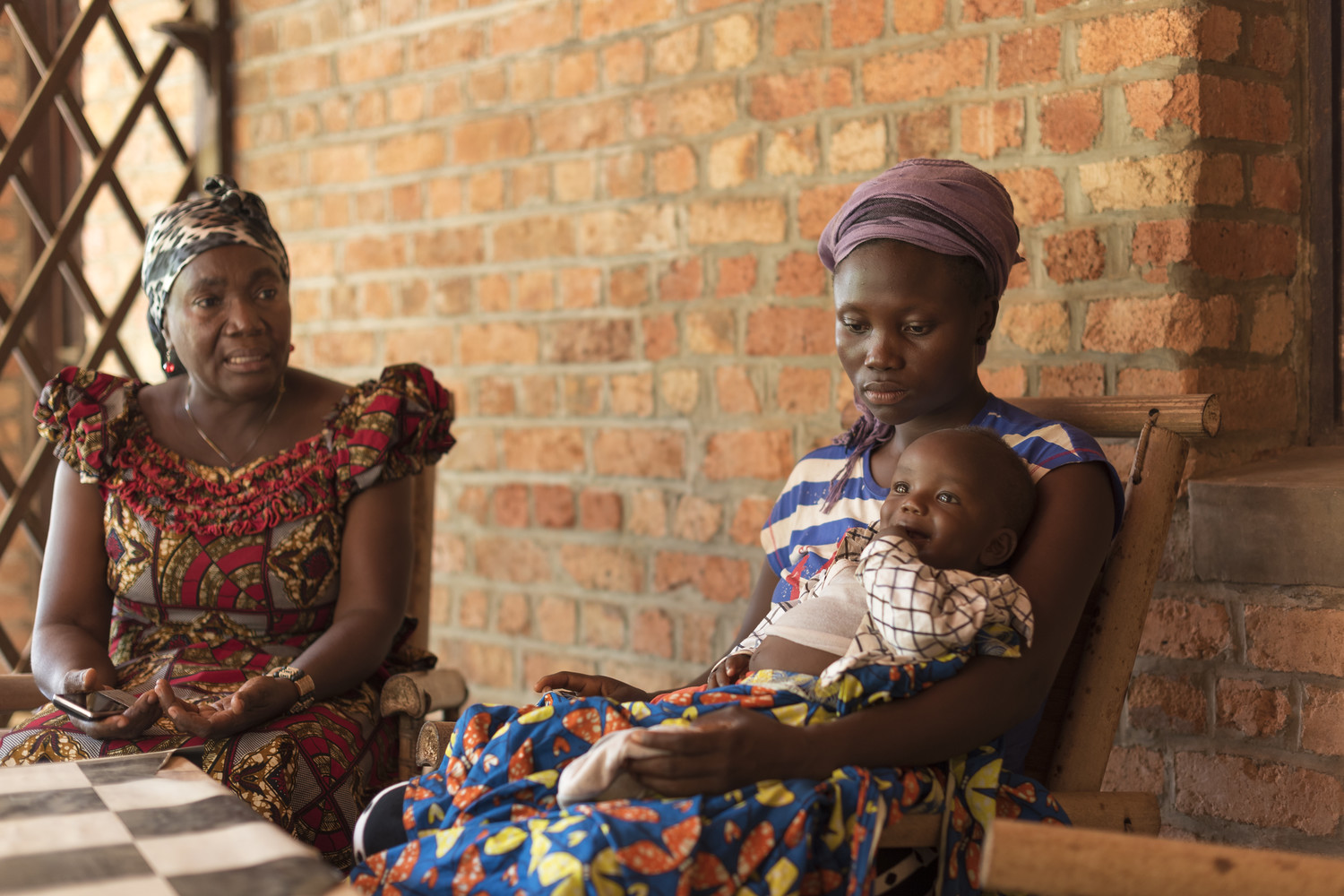REACHING THOSE TRAUMATIZED
Wycliffe staff member Margaret Hill and Harriet Hill (a former Wycliffe member now with the American Bible Society) began developing the Healing the Wounds of Trauma workbook and program in 2000, after witnessing the trauma caused by the civil war in the Democratic Republic of the Congo (DRC) in the late ‘90s. They responded to a clear need for resources and programming by church leaders, who lacked an understanding of trauma and mental health principles to help those traumatized in their communities. Workshops were first held in Kenya in 2002, even before the book was published.
ABOUT THE AUTHORS
The four authors of Healing the Wounds of Trauma have trained hundreds of trauma healing facilitators with these materials since 2002.
HARRIET HILL, program director for the Trauma Healing Institute at American Bible Society, received her PhD in intercultural studies from Fuller Theological Seminary in California. She was formerly a member of Wycliffe, working in Ivory Coast.
MARGARET HILL, a Wycliffe Bible translation consultant, received her master’s degree in education from the University of Manchester (UK).
RICHARD BAGGÉ, counselling ministry co-ordinator for Wycliffe in Africa, received his M.D. from Jefferson Medical College in Philadelphia and did his residency in psychiatry at Duke University Medical School.
PAT MIERSMA, an international counselling co-ordinator with SIL (Wycliffe’s main field partner), received her M.N. as a mental health nurse and ethnic clinical specialist from U.C.L.A.
THE BOOK—HEALING THE WOUNDS OF TRAUMA: HOW THE CHURCH CAN HELP
FIRST PUBLISHED IN 2004, each of the 11 lessons of the book begins with a real-life story, followed by discussion questions and participatory exercises. The book includes 270 Bible references from 217 passages and is based on basic mental health concepts within a biblical framework.
Of the 11 chapters of the original book, five are “core” chapters, while the others are used as needed. There is a separate edition for children, earthquake victims and other special audiences, and a storybased version for those without a written language or with no Scripture in their first language.
LESSON TITLES (ADULT PROGRAM)
1 ) If God loves us, why do we suffer?
2) How can the wounds of our hearts be healed?
3) What happens when someone is grieving?
4) Helping children who have experienced bad things
5) Helping people who have been raped
6) How can churches minister amidst HIV-AIDS?
7) Caring for the caregiver
8) Response: Taking your pain to the cross
9) How can we forgive others?
10) How can we live as Christians amidst conflict?
11) Looking ahead
*The bold titles are core lessons.
Through the lessons, hurting people identify and bring their burdens to God. Participants are invited to bring their pain to the cross of Christ for healing.
As they release their pain, they are often able to forgive and sometimes can be reconciled with those who have inflicted the pain. They are freed to care for themselves and serve others.
SCOPE OF TRAUMA HEALING
People who have received trauma healing - 83,924 in DRC, 1.3 million globally
Trauma healing groups that have met - 166 in DRC
Trauma healing facilitators trained - 487 DRC, 4,000 globally
Languages in which Healing the Wounds of Trauma have been published or are being prepared - 10 DRC, 194 globally
WORKSHOPS
Sessions are held to train church leaders to become facilitators so they can lead healing sessions in their own communities. The program uses a four-stage process to equip caregivers and provide them with accountability and support so they can help hurting people. Using the trauma healing book, facilitators lead traumatized people, both in small groups and one-on-one.
GOALS OF FACILITATOR WORKSHOPS
- Participants understand the basic biblical and mental health principles in the lessons.
- They translate the lessons into their own language.
- They develop a plan for teaching the lessons in their churches.
QUESTIONS?
WHY TRAIN TRAINERS?
“If you train 20 people they go and train 10 people . . . they multiply themselves. So then at the end of that you’ve got hundreds of people who are learning how to help others.” — Margaret Hill, Wycliffe international translation consultant
WHY ARE STORIES USED TO START EACH LESSON?
“People remember stories. People relate to stories. You don’t want just pedagogical material, you want something they can relate to. And stories really help to get the point across. Africans love stories. Actually, I think the whole world loves them, but particularly Africans.” — Margaret Hill
WHY IS WYCLIFFE [OR SIL] INVOLVED IN THIS TRAUMA HEALING PROGRAM?
"In countries where they’re traumatized, one of the ways of getting people to really want to read the Scriptures and to teach others is to show that it’s relevant to their real lives. [The trauma healing program] shows that the Scriptures really work . . . you can apply them to real life situations." — Margaret Hill
WHAT IS THE SIGNIFICANCE OF TRAUMA HEALING LESSONS IN THE MOTHER TONGUE?
“When you have really understood what trauma healing is all about, then it touches you and you are able to translate the concepts into your mother tongue and express them in your mother tongue. . . .” — Bishop Jean David Awilingata Modibale, trauma healing facilitator
